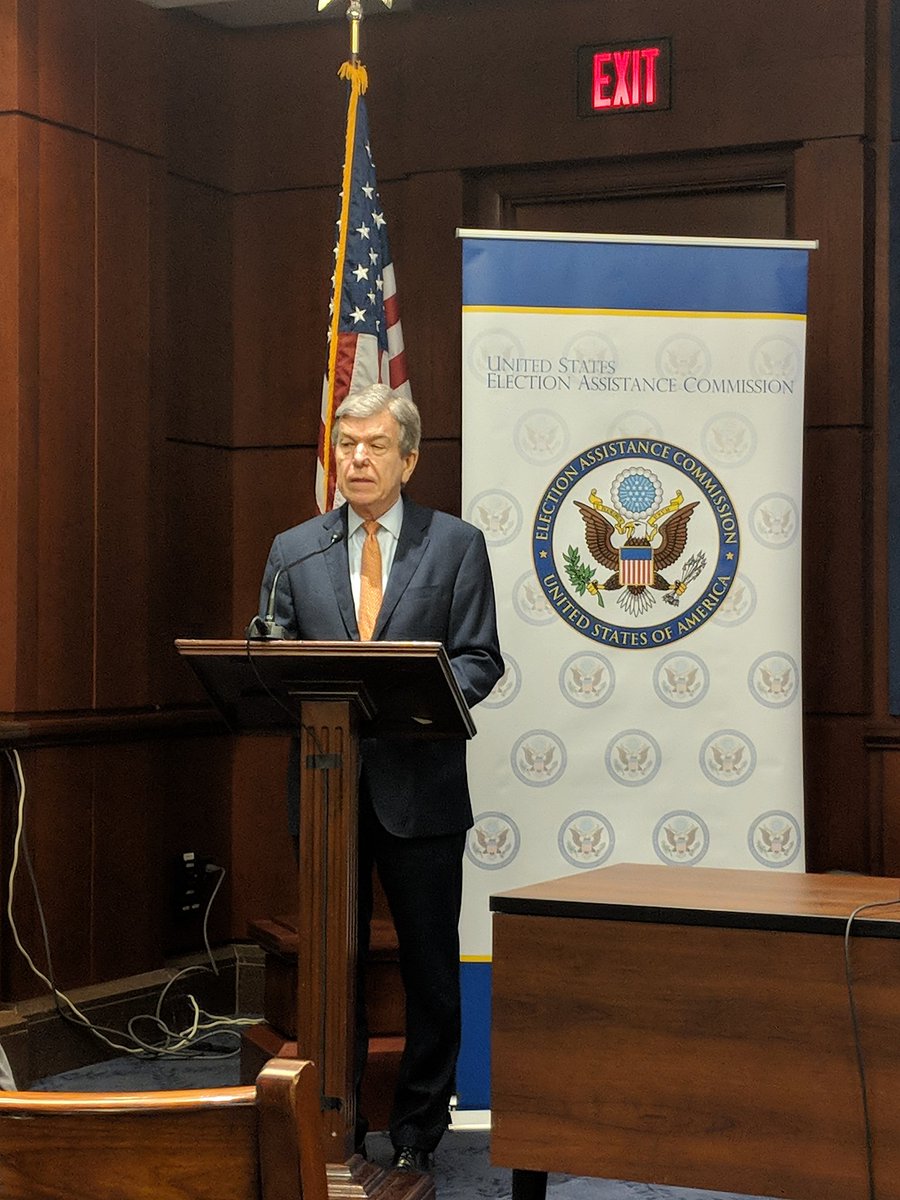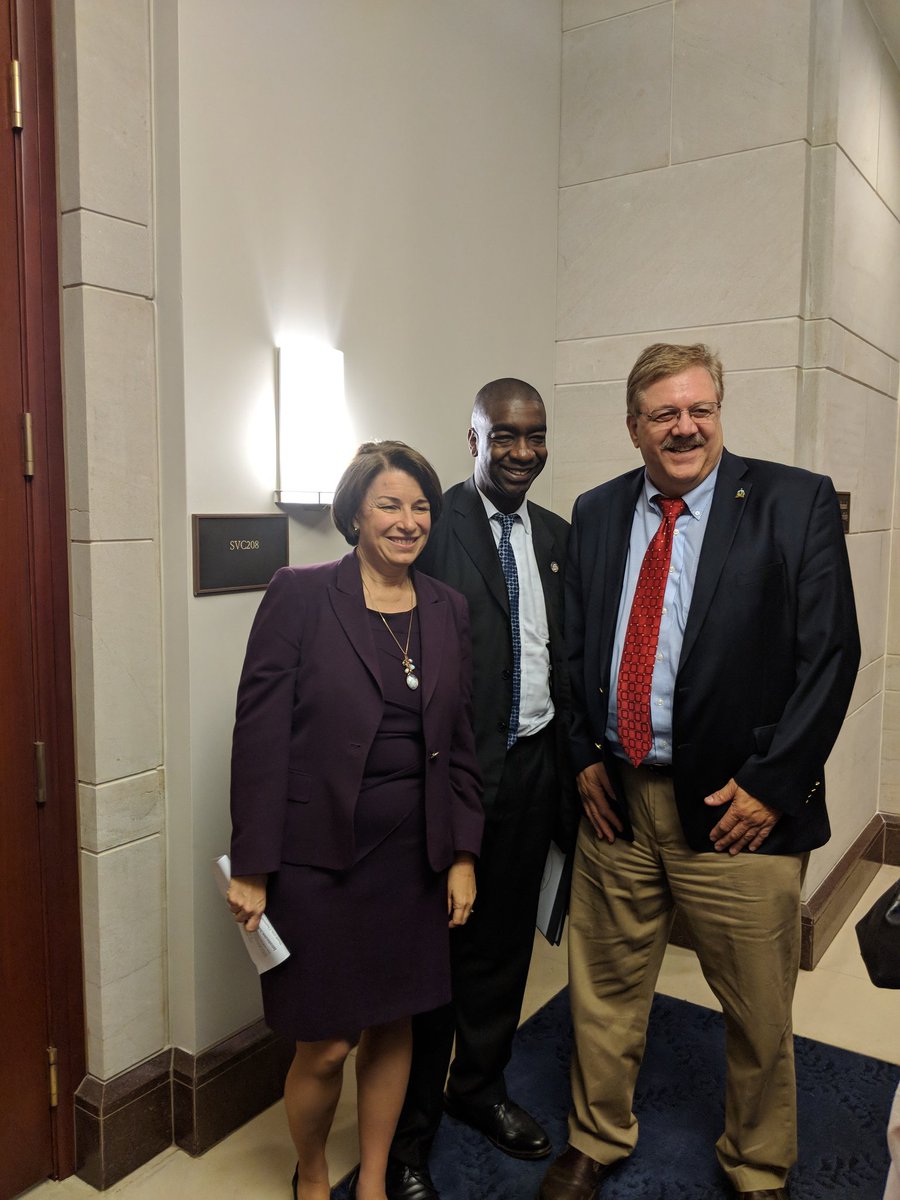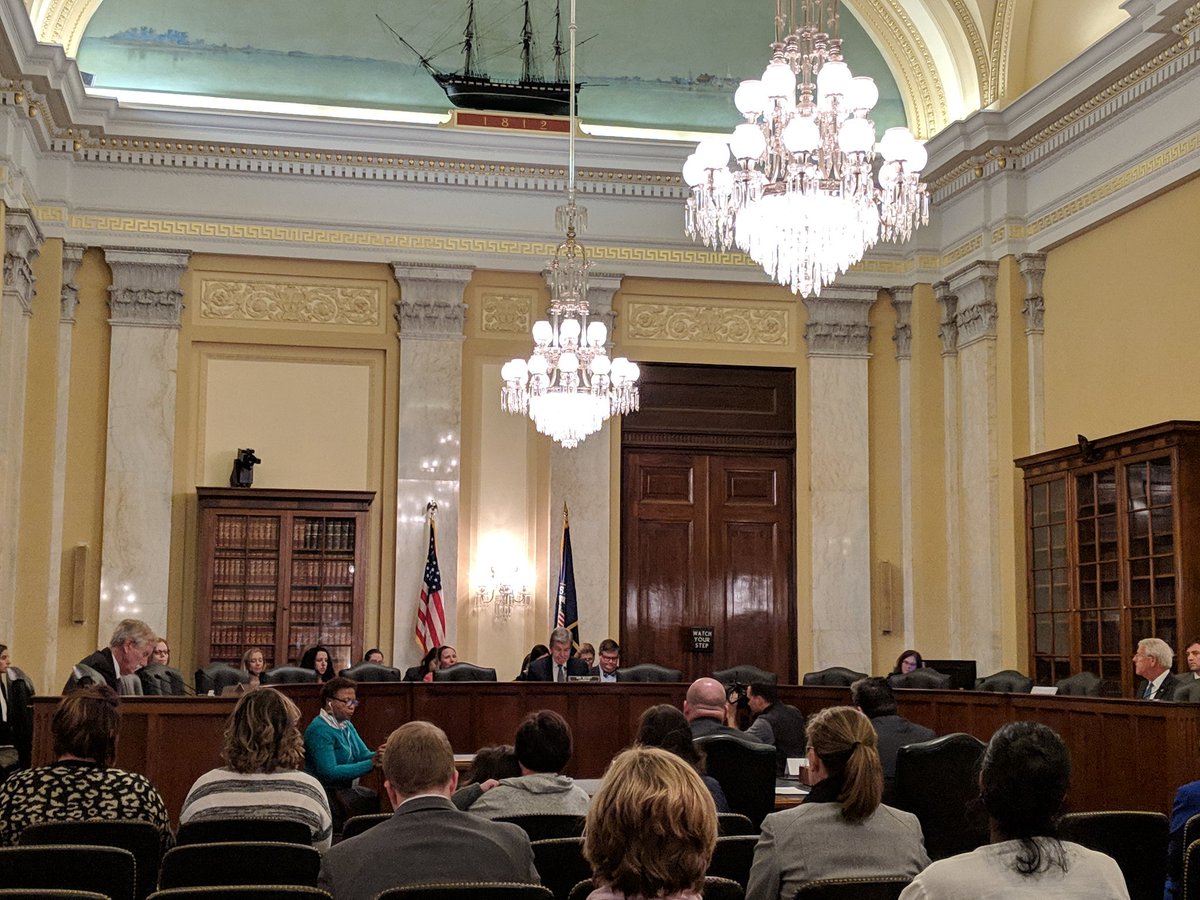
“We’ve had some interesting discussions recently about the [SEA]. And he’s standing up for all the secretaries of state across the country. We really hope we can work this out.”
"Part of this is stepping back a little and thinking, 'How did we always do things? Well, we always did things this way. We're going to have to do things differently.'"
Back then, he says, states complained frequently about the partnership.
She said she wants Congress to pass the Secure Elections Act during the lame duck and urged states to support it now b/c in January 2019 a more Democratic Congress might propose a stricter bill. subscriber.politicopro.com/cybersecurity/…
"We have a new version coming out," she said, "and we just ask you to work with us."
"I think [it] would be good if we could possibly get it done by the end of the year."
Krebs: "We have to get over this assumption that the federal government knows all and sees all and has intelligence collection holdings that are able to paint the full picture before a bad thing happens. That’s just not how it works."
"We really encourage folks, if you see something, say something."
"We think that we’re making a significant amount of progress in the voluntary partnership space."
subscriber.politicopro.com/cybersecurity/…
Big blow to activists pushing for industry oversight.
“We think, given the pace of technology development, given innovation, that we can continue with the appropriate support, awareness [and] partnerships and we will be able to get the security outcomes we want."
"We have to have a little bit of awareness that it doesn’t happen overnight," he said.
He also said that DHS was "seeing progress in this area."
Krebs said DHS would stick to promoting paper ballots and audits, which provide failsafes if a modem is "compromised."







